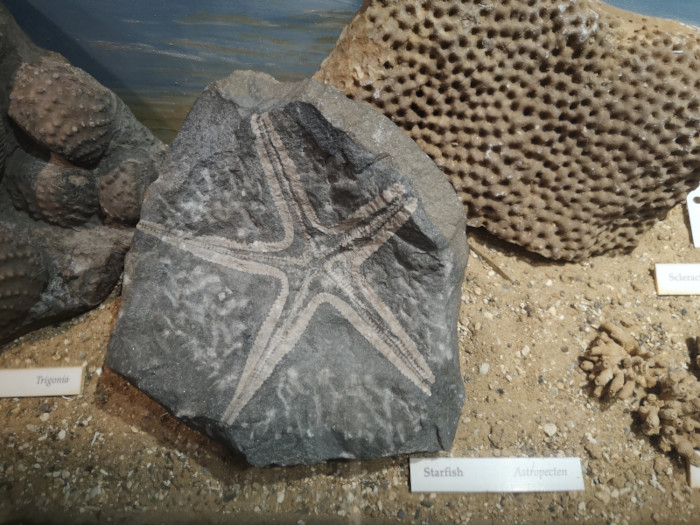Make your own Anglerfish mask and discover how this crafty fish tempts in its prey...
Salt dough is easy to make and can be used to make all sorts of models - including starfish. This activity will show you how.
Fossil Jurassic star fish from the Sedgwick Museum

Make a wonderful water lily that opens in water.
This type of tropical flower is pollinated by beetles. In the daytime these stay hidden inside the closed flower. If you want, cut out the beetle and hide it inside your flower before placing it on water!
We would love to support your visit to the Botanic Garden, please contact us to discuss a bespoke workshop to suit your needs. We can support subjects across the curriculum, including Science, English and Art. We look forward to hearing from you!
If the workshops listed do not meet your needs we would still love to support your visit to the Botanic Garden, please contact us to discuss a bespoke workshop to suit your needs. We can support subjects across the curriculum, including Science, English and Art. We look forward to hearing from you!
Which do you think is the fastest, or the slowest of three main types of earthquake waves – surface, P waves and S waves? Have a race to find out.
In this activity you will see the difference in compressional P waves, transverse S waves and circular surface waves that are produced by earthquakes. You will need a big group of at least 15 people split into three groups.
If the workshops listed do not meet your needs we would still love to support your visit to the Botanic Garden, please contact us to discuss a bespoke workshop to suit your needs. We can support subjects across the curriculum, including Science, English and Art. We look forward to hearing from you!
Visit our workshops page to see what is available for your class.
Led by expert staff, our workshops for KS2 allow your class to experience the beautiful Botanic Garden and ignite their interest in plants and science. All workshops are hands-on and involve exploring the Garden and getting up close with some of our 8000 species of plants.
Workshops for KS1 link to the National Curriculum and allow you to bring your learning about plants to life. Enthuse your class with a morning experiencing the Botanic Garden in a hands-on way with our expert staff. Workshops are two hours long. We can support your pupils’ science learning in Plants, Living things and Their Habitats, Seasonal Changes and Working Scientifically. We also offer a workshop which supports your work in English and Art and Design.
Our workshops for EYFS are one hour long and will allow your pupils to experience the wonder of the natural world in the beautiful space of the Botanic Garden. You can combine a workshop with spending time in the Garden to picnic or explore on a self-led basis. The workshops support many areas of the EYFS framework, particularly Understanding the World, Literacy and Communication and Language.

